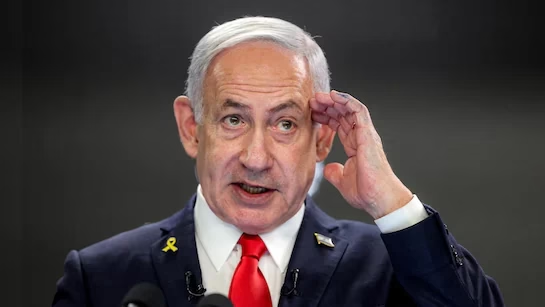
In a highly charged political move, Israeli Prime Minister Benjamin Netanyahu declared with resolute certainty, “There will be no Palestinian state,” during a ceremony marking a major expansion of Israeli settlements in the occupied West Bank. The announcement signals a clear policy shift from previously expressed openness to negotiations, raising deep concern in international diplomatic circles and among Palestinians.
A Historic and Controversial Expansion
The announcement took place at a signing ceremony for the expansion of the Ma’ale Adumim settlement, situated near East Jerusalem. This expansion is part of the highly contentious E1 plan, which aims to link Ma’ale Adumim directly to Jerusalem through thousands of new housing units, infrastructure developments, and improved road networks. Netanyahu’s statement, “This place belongs to us,” underscored Israel’s firm stance on territorial sovereignty and dismissed any future prospect of a two-state solution.
Netanyahu argued that the expansion is critical to Israel’s national security and historic claim over the land. “Our people have lived here for generations. Our right to this land is not subject to negotiations or external pressure,” he asserted during the event, attended by senior government officials and media representatives.
International Reactions and Tensions
The decision to greenlight this large-scale settlement expansion comes after years of delay, primarily due to intense international opposition. The United States, European Union, and United Nations have repeatedly condemned settlement activity in the West Bank as illegal under international law and a major impediment to peace efforts. Following Netanyahu’s announcement, Western diplomats expressed deep disappointment, warning of consequences for Israel’s standing in the global community.
“The expansion of settlements undermines decades of diplomatic efforts and destabilizes the entire region,” a European Union official commented. Meanwhile, the United Nations released a statement reaffirming that settlement activity is a violation of international law and urges Israel to reverse the decision.
The timing of Netanyahu’s declaration also coincides with growing regional tensions. Recent Israeli airstrikes have targeted Hamas leaders in Qatar, while military operations continue in Gaza. This escalation adds further complexity to an already volatile situation, raising fears of a broader conflict.
The E1 Plan: A Flashpoint of Controversy
The E1 settlement project is at the center of this controversy. Its goal is to establish a continuous Israeli presence between Jerusalem and Ma’ale Adumim, effectively fragmenting the West Bank and complicating any future Palestinian territorial continuity.
Critics argue that this development would make a viable Palestinian state virtually impossible, reducing Palestinian land to disconnected patches and exacerbating already fragile socio-political conditions. Palestinian officials condemned the announcement as a “declaration of war against peace” and called for immediate international intervention.
“This aggressive move is not just an affront to Palestinians but a slap in the face to global peace efforts,” said a senior Palestinian official. Meanwhile, protests have erupted in several Palestinian cities, underscoring growing anger and fear among local populations.
The Domestic Front: Supporters vs. Critics
Domestically, Netanyahu’s hardline stance has bolstered his support among right-wing and nationalist voters, who view the expansion as necessary for Israel’s security and historic rights. Supporters applaud the move as decisive leadership in defending Israel’s future.
However, opposition voices within Israel argue that this decision will isolate the nation further internationally and damage long-term prospects for peace. Critics from the Israeli left and center warn that such unilateral moves reduce the chances of a negotiated settlement and deepen the regional divide.
“This is not a step toward security, but a dangerous leap into further instability,” stated a prominent Israeli opposition leader. “We must pursue dialogue, not unilateral land grabs.”
Financial Commitment and Long-Term Impact
The E1 project comes with an estimated $1 billion investment, allocated to building roads, housing units, and essential infrastructure. The Israeli Defense Ministry’s planning commission fast-tracked approvals, signaling the government’s determination to implement the plan without further delays.
Proponents argue the project will improve security by creating strategic roadways and integrating the settlements into the national fabric. Yet many see this as an irreversible step toward permanently preventing the establishment of a Palestinian state.
The Global Call for Dialogue
As the international community closely monitors these developments, many experts and diplomats urge a return to negotiations. The United Nations is preparing resolutions to address the situation during the upcoming General Assembly, and some Western nations are hinting at the possibility of recognizing Palestinian statehood unilaterally.
In this volatile context, Erika Kirk’s poignant public appearance—only days after her husband’s assassination—also symbolizes the growing global awareness of political violence and its ripple effects.
Conclusion: A Defining Moment
Prime Minister Netanyahu’s vow that “there’ll be no Palestinian state” and the aggressive settlement expansion mark one of the most significant turning points in Israeli-Palestinian relations in recent years. As tensions mount, the world watches, hoping that dialogue will eventually prevail over division, and peace may yet be possible.



